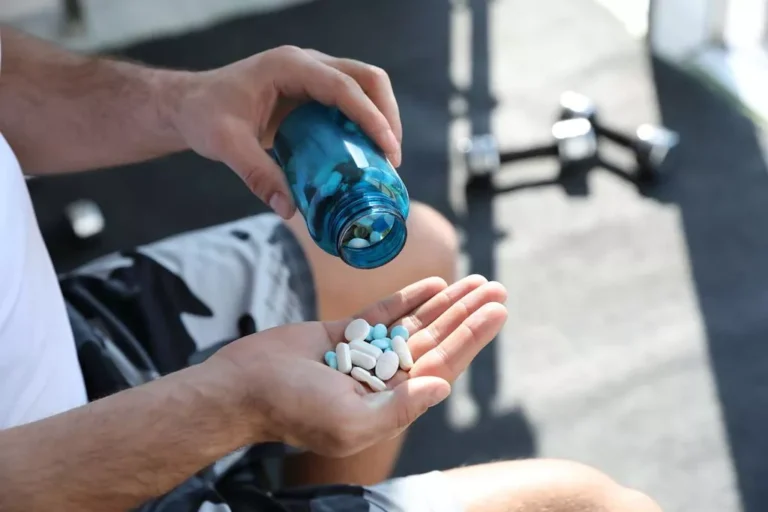
Neurotransmitter imbalances related to alcohol actually play a role in the benefits of using kudzu to stop drinking or taking kudzu for alcohol cravings, which we’ll talk about more later. The isoflavones like puerarin in kudzu have been investigated for cardiovascular benefits. These could be attributed to the vasodilatory and antioxidant effects of kudzu. Some studies suggest that Kudzu Root Extract may help in modulating blood pressure levels.
Are there any side effects associated with taking kudzu for alcoholism?
When using OTC medication and supplements, it is always critical for the individual to consider the dosage recommendations. The person needs to ensure they only take the pills as directed on the packaging or insert. Taking more of the supplement will not help to provide a more effective way of speeding up the recovery process. Instead, an overdose of these medications may rather lead to unwanted side-effects. Among those who took the Kudzu supplement, there was a noticeable reduction in the amount of beer consumed during the study.
- As a consequence, daidzin could reduce alcohol consumption by altering monoamines that are important in central reward pathways (Rooke et al., 2000).
- Alcoholism is also generally divided into three stages – this ranges from mild to severe.
- This allowed them to measure the rate of drinking as well as the volume of sips.
Get connected! Receive support, news, and the latest in cutting-edge addiction treatment right in your inbox.
Day 8 always consisted of a placebo (orange juice only) drink challenge, while day 9 consisted of an alcohol drink challenge of either the high or low dose depending on group randomization. Participants were told only that the drinking sessions could be with placebo, or a low or high dose of alcohol. The drinks were administered between 2 and 2.5 hours after consumption of the morning dose of medication as blood levels of puerarin peak at this time (Penetar et al., 2006). Participants continued to take their medication through the morning of day 9 prior to the alcohol drink challenge. Following the first set of challenge sessions, there was a 1 month ‘washout’ period during which no medication was taken. This washout period provided ample time to eliminate pharmacodynamic interactions between kudzu and placebo treatment conditions.
Estrogenic activity
- Significant induction of cytoprotective heat-shock proteins HSP27 and HSP70 was found in the ginseng-administrated rats, which suggested that the restoration of these proteins might contribute to preventing alcohol-induced gastric injuries 96.
- This is due to the effects that the chemicals in evening primrose have on the gastrointestinal tract.
- Such side effects that kudzu gives relief to are the hangover effects, a common affliction in people who struggle with alcohol addiction.
- Kudzu is being investigated for treatment of alcohol use disorder and cervical spondylosis; the estrogenic activity and cardioprotective effects of kudzu and its constituent puerarin are also under investigation.
- Your healthcare provider can help determine the most suitable approach based on your unique circumstances.
- Owing to the antioxidant effect of ginger, Zingiber officinale is recommended to be used as natural product to treat alcohol toxicity.
Effect size is reported using the variance-accounted for statistic Partial Eta-Squared (η2Partial). All tests were two-sided with significance level of 0.05 and were performed using SPSS software (version 19.0, IBM SPSS, Inc, Chicago, IL). A standardized formulation of kudzu extract produced minimal side effects, was well-tolerated and resulted in a modest reduction in alcohol consumption in young non treatment-seeking heavy drinkers. Additional studies using treatment-seeking alcohol-dependent persons will be necessary to determine the usefulness of this herbal preparation in reducing alcohol use in other populations. We previously demonstrated that short-term treatment with a standardized kudzu extract (NPI-031) reduced alcohol drinking by men and women in a natural setting. The present study was conducted in non treatment-seeking heavy drinkers to assess the safety and efficacy of four weeks of kudzu extract in an outpatient setting.
This includes liver cells, thus helping to provide a protective effect in people who drink a lot of alcohol. It’s generally advised that a person receive conventional treatments when they suffer alcohol use disorder. These scenarios may sometimes be resolved with the use of certain OTC pills. It’s best to speak with your healthcare provider to determine whether kudzu and alcohol kudzu root could interact with any medications you’re taking.
Duration of Study

The number of beers consumed and the volume of each sip was decreased while the number of sips and the time to consume each beer was increased. In another study, 20 men participated in a placebo-controlled, double-blind design experiment, where kudzu extract (2 g) with an active isoflavone content of 520 mg, quickly reduced alcohol intake in a binge drinking paradigm 46. Extracts from the roots of Salvia miltiorrhiza could reduce alcohol intake in sP rats.

Another study has demonstrated that proper vehicle such as polysorbate 80 to form micelles with the active ingredient(s) of the Salvia miltiorrhiza might contribute to reducing effect on alcohol intake in sP rats 114. Alcohol use disorder involves repeated alcohol use which leads to tolerance, alcohol withdrawal syndrome, physical and psychological dependence as well as compulsive and uncontrolled consumption of alcoholic beverages. The most important purpose of treating alcohol use disorder is centered on reducing alcohol withdrawal syndrome and improving alcohol drinking behaviors. Currently there is no effective therapeutic agent without side effects for alcohol use disorder. Several drugs are available to treating the alcohol use disorder, such as disulfiram (aldehyde dehydrogenase inhibitor), naltrexone (opioid antagonist), topiramate (GABAergic anticonvulsant) and acamprosate (NMDA/glutamate receptor modulator) 97,98,99.
Hypericum perforatum and Salvia miltiorrhiza could be potential natural products to treat alcohol use disorder and will be discussed below, while Scutellaria baicalensis is important in the treatment of liver disease. An analysis of the participant’s alcohol craving or urge to drink prior to the drinking session revealed that neither was affected by kudzu pretreatment. During the session, only drinking amounts and patterns were recorded to avoid interfering with the participant’s alcohol self administration behavior so it is not known if the subjective effects of alcohol were affected. The present study was conducted to assess the effects of kudzu extract after alcohol consumption on several behavioral, psychomotor, cognitive, Alcohol Use Disorder and physiological measures in an attempt to uncover potential drug interactions.

- The present study provides further evidence that extracts of the kudzu root are effective in reducing alcohol consumption but unlike any other medication (other than disulfiram) it does so after a single dose was taken shortly before a binge drinking opportunity.
- When you drink, as mentioned, it affects your neurotransmitter systems, including dopamine.
- He has a nursing and business/technology degrees from The Johns Hopkins University.
- These phytochemicals can help fight disease caused by inflammation, treat alcoholism, reduce blood pressure, fight the flu, reduce symptoms of menopause and more.
Puerarin, one of the most abundant isoflavones in kudzu root extracts, is a known vasodilator and is approved for such use in China following coronary infarction and stroke (Wu et al., 2014). Fructus evodiae is a widely used herbal medicine in China with anti-inflammatory and analgetic activities. Dehydroevodiamine, evodiamine and rutaecarpine are the dominant bioactive constituents in Fructus evodiae 50. The extract of Fructus evodiae could be used as a potential remedy for hangover symptoms induced by alcohol on mice by stimulating the expression of hepatic alcohol metabolizing and antioxidant enzymes 51. The results showed that among all groups the plasma alcohol concentrations were the lowest in Fructus evodiae treated groups.
2 Behavioral and Subjective Effects
It is known that kudzu root extract is effective at reducing alcohol intake in animals and in humans. The three major isoflavones present in kudzu extracts, daidzin, daidzein and puerarin are responsible for the beneficial effects in reduction of alcohol consumption, although the exact mechanism by which kudzu suppresses ethanol intake remains to be clarified. It has been proven that daidzin in vitro is a strong, selective and reversible inhibitor of aldehyde dehydrogenase.
